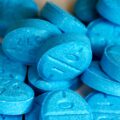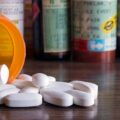The heroin detox process is a crucial first step in overcoming addiction to this powerful and dangerous drug. By safely and effectively removing heroin from the body, individuals can begin their recovery journey and a healthier, drug-free life.
Risks of At-Home Detox
Detoxing from heroin at home can pose serious risks and complications. Without medical supervision, individuals experience severe withdrawal symptoms, including nausea, vomiting, diarrhea, and intense cravings that lead to a relapse.
Additionally, the potential for overdose during detox is heightened due to decreased tolerance levels. Professional medical guidance and support are essential during the detox process to ensure safety and a successful transition to sobriety.
The Heroin Detox Process: What to Expect
As an individual embarks on the detox process from heroin abuse, they can expect a comprehensive evaluation by medical professionals. This is done to assess their physical and mental health, history of substance abuse, and any underlying co-occurring disorders.
They can also expect round-the-clock supervision to ensure safety and support throughout withdrawal.
MAT
Medication-assisted treatment (MAT) may be prescribed to alleviate withdrawal symptoms and reduce drug cravings. This can include medications like methadone or buprenorphine to help manage the detox process.
Talk Therapy
Talk therapy is often utilized during detox to address the psychological aspects of addiction. Therapies like cognitive-behavior therapy (CBT) and individual and group therapy help individuals understand their triggers, develop coping strategies, and develop relapse prevention strategies.
Dangers of Untreated Heroin Addiction
Untreated heroin addiction can have devastating consequences on an individual’s physical health, mental well-being, and quality of life. As tolerance levels increase, dosages increase, further increasing the risk of overdose. Heroin abuse is associated with serious health issues, including infectious diseases, cardiovascular problems, respiratory conditions, gastrointestinal disorders, and liver damage.
Chronic heroin use can lead to severe depression, anxiety disorders, psychosis, cognitive impairment, and other psychiatric issues. Heroin use leads to social withdrawal from loved ones as well as strained relationships.
Heroin use also places a financial burden on individuals struggling with addiction. Additionally, heroin users engage in risky behaviors, like sharing needles or unsafe sex. Heroin addiction can lead to co-occurring mental health disorders like depression or anxiety.
Withdrawal Symptoms
Withdrawal symptoms from heroin can be intense and challenging to endure. This often causes individuals to continue using the drug despite any negative consequences.
Common withdrawal symptoms include:
- Nausea
- Vomiting
- Diarrhea
- Sweating
- Muscle aches and pains
- Insomnia
- Anxiety
- Irritability
- Fatigue
- Cravings for heroin
Fatal And Non-Fatal Overdoses
Heroin use puts individuals at risk of both fatal and non-fatal overdoses. In an overdose, the individual consumes a dose of heroin that suppresses their respiratory function. When fatal, it leads to death.
However, with immediate medical intervention, it can be possible to reverse the effects of Naloxone and save the person’s life. Heroin overdose signs include but are not limited to:
- Slowed breathing and heart rate
- Constricted pupils
- Blueish lips or fingertips
- Loss of consciousness
- Unresponsiveness
Statistics from the CDC and the NIDA provide insights into the alarming rates of fatal and non-fatal heroin overdoses. In 2021, there were approximately 106,699 drug overdose deaths. Overy three-quarters involved opioids such as heroin. Heroin overdose deaths have steadily risen over the past decade since 2014.
According to NIDA, there were an estimated 15,482 heroin-related overdose deaths in 2017. Furthermore, non-fatal overdoses are just as prevalent in individuals struggling with heroin addiction.
Detox Process and Withdrawal Timeline
The detox process and withdrawal timeline vary from person to person. It depends on factors such as the duration, frequency of use, and amount taken.
However, a general overview of the detox process and withdrawal timeline includes:
- Days 1 to 2: Withdrawal symptoms begin within 6 to 12 hours after the last dose. Symptoms may include watery eyes, sweating, agitation, anxiety, agitation, muscle aches, runny nose, and insomnia.
- Days 3 to 5: Symptoms tend to peak in intensity during this time. Common symptoms include nausea, vomiting, cravings, elevated blood pressure, and abdominal cramps.
- Day 6 and onwards: Physical symptoms gradually subside. However, psychological withdrawal symptoms like depression, cravings, anxiety, and sleep disturbances can persist.
It’s important to note that post-acute withdrawal, often called PAWS, may continue intermittently for months or sometimes longer. With continued support and treatment, these symptoms will also subside eventually.
IOP vs. OP for Heroin Detox
When considering treatment options for heroin detox, individuals may choose between intensive outpatient programs (IOPs) and outpatient programs (OPs). IOPs offer a higher level of care and structure compared to OPs. Therapy sessions are for several hours each day, weekly.
IOPs allow individuals to maintain daily responsibilities while receiving treatment. Treatment includes individual and group counseling, medication management, and other support services.
OPs are less intensive compared to IOPs and offer more flexibility. They are suitable for those with milder addiction or as a step-down after completing a higher level of care. Treatment usually involves the same options as IOPs but with fewer hours of attendance each week.
OvercomeHeroin Addiction in Murfreesboro, TN
When you are ready to break the cycle of addiction, Tulip Hill in Murfreesboro, Tennessee, is here to help. We offer comprehensive and personalized treatment programs tailored to your needs. Our caring and compassionate staff create a safe and supportive environment to start healing.
Contact us now to discover the path to a heroin-free future with our heroin detox process.



 Call Us
Call Us
 877-845-8192
877-845-8192